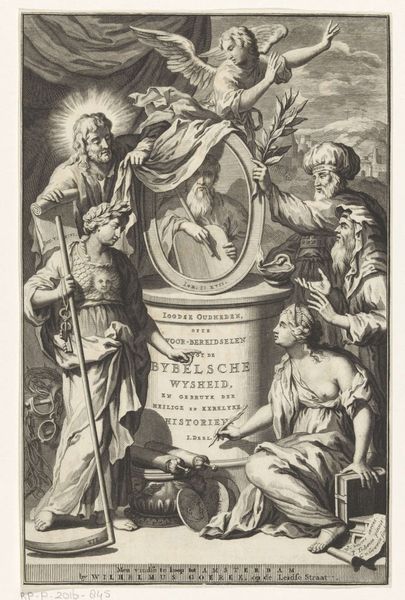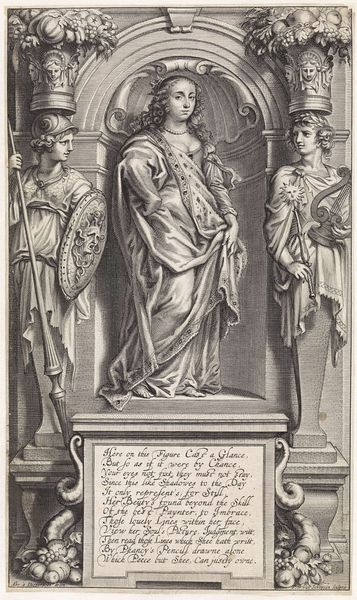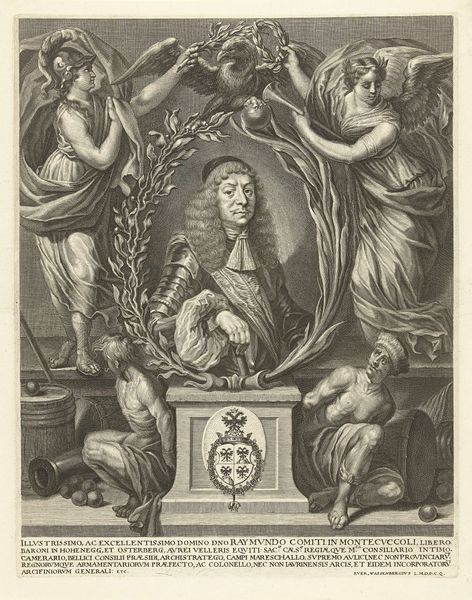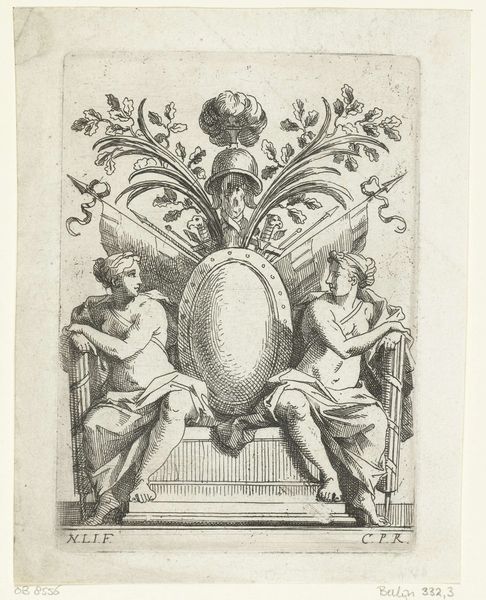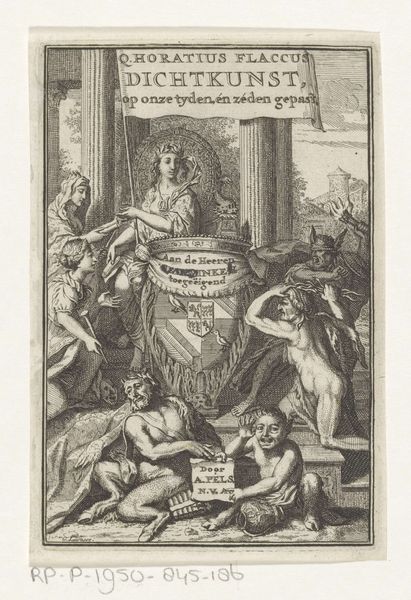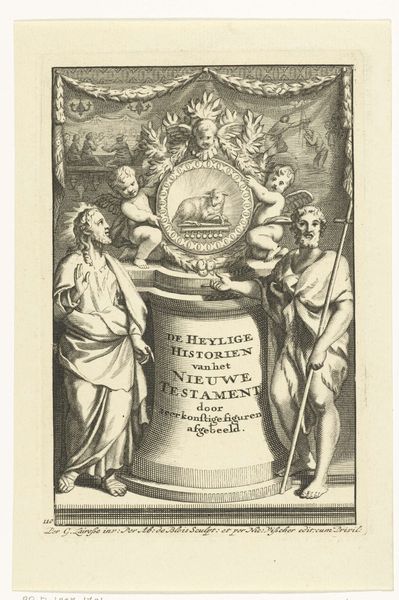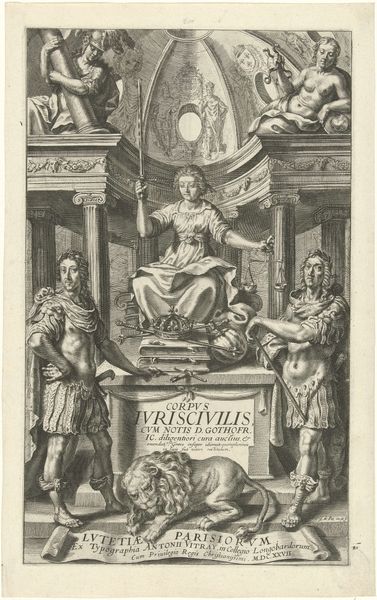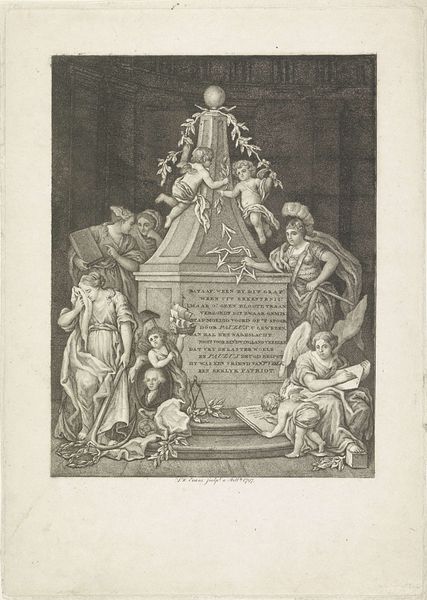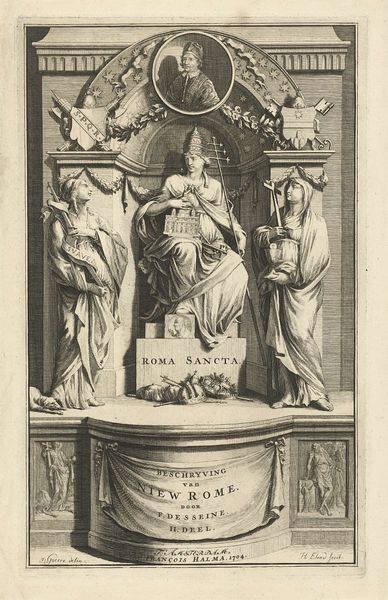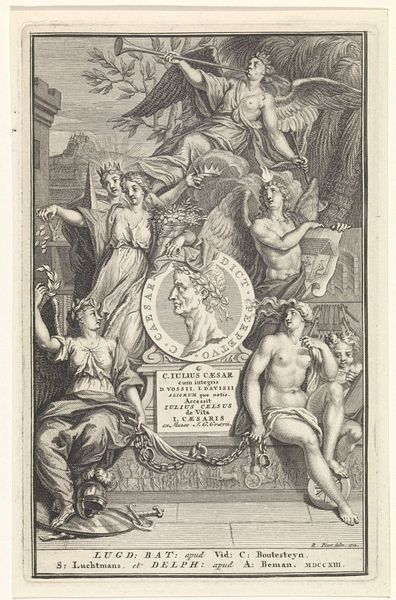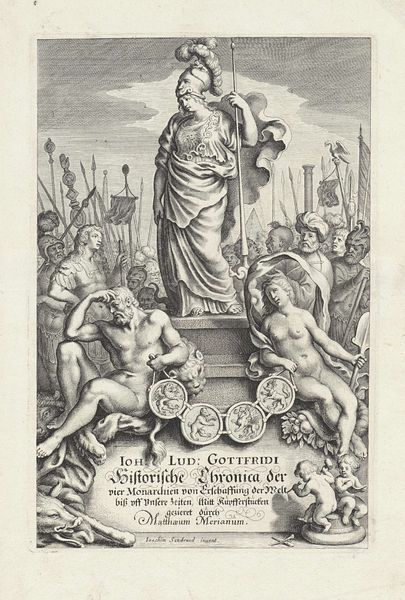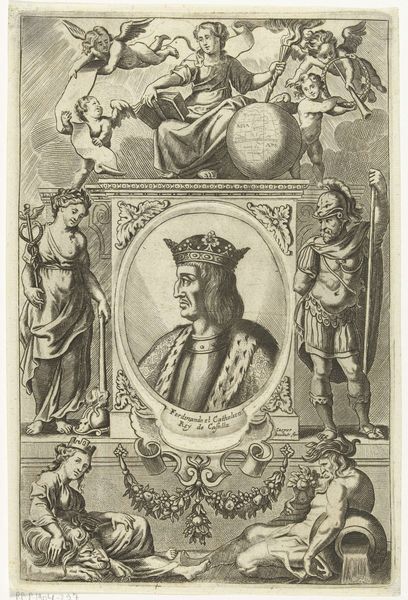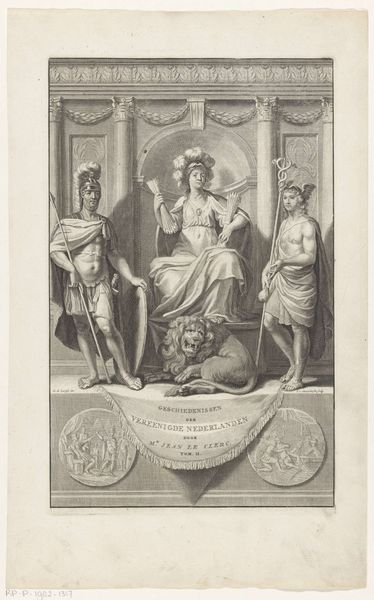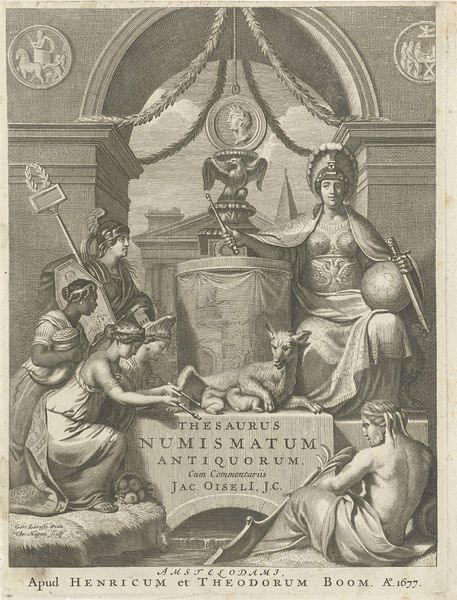
print, engraving
#
portrait
#
allegory
#
baroque
#
dutch-golden-age
# print
#
old engraving style
#
figuration
#
wedding around the world
#
pen-ink sketch
#
history-painting
#
engraving
Dimensions: height 279 mm, width 175 mm
Copyright: Rijks Museum: Open Domain
This print, "Mars en Mercurius bij de Hollandse maagd" was made in 1642 by Theodor Matham using engraving, a printmaking technique that demands incredible skill. The artist would have used a tool called a burin to carve lines directly into a copper plate. The incised lines hold ink, and when the plate is pressed onto paper, the image is transferred. Look closely, and you can see the crisp, precise lines that define the figures of Mars, Mercury, and the Dutch maiden. The density of these lines creates areas of shadow and depth, giving the print a remarkable tonal range. Engraving was a laborious, painstaking process, requiring not only artistic talent but also technical mastery. It speaks to a culture that valued precision, detail, and the hand of the artist. The print would have been sold as a commodity, reproduced in multiples to be widely distributed and consumed. By appreciating the craft behind it, we can understand more about the image and the society that produced it.
Comments
No comments
Be the first to comment and join the conversation on the ultimate creative platform.
